
What is a 'halal mortgage'? Does it make housing more accessible?
The 2024 federal budget announced on April 16 included plans to introduce “halal mortgages” as a way to increase access to home ownership.
With a high number of Canadians expected to retire over the next few years, the trend of younger generations inheriting their family cottages will contribute to “major shifts” in the ownership of recreational homes, according to new research from Re/Max.
But amid rising concerns around the cost of housing, some may be wondering whether they can afford to keep their recreational home in the family.
In its 2023 Cottage Trends Report released April 27, Re/Max says Generation X is already driving the recreational housing market, partly due to the high volume of intergenerational wealth transfers. Additionally, data released by TD Bank Group earlier this year shows nearly 900,000 baby boomers are set to retire within the next three years.
According to Christopher Alexander, president of Re/Max Canada, many more families are likely to pass their cottages down to loved ones in the years to come.
“The torch has kind of been passed from baby boomers to gen-Xers, who are driving market activity right now,” Alexander told CTVNews.ca in a telephone interview on Wednesday. “[Gen Xers] are also buying cottages with the intention to pass it on to their children [and] have it as a family heirloom.”
A Leger survey commissioned on behalf of Re/Max as part of its trends report shows 56 per cent of Canadians either plan to or have already put their recreational property in their beneficiary’s name. Additionally, 74 per cent of those who own recreational properties say they feel confident they will be able to pass down their property to relatives with the proper planning.
While many Canadians appear confident in their ability to do this, a key factor to take into consideration is whether their children can afford to keep the home, said Jamie Golombek, managing director of tax and estate planning with CIBC in Toronto.
Amid a cost-of-living crisis, home affordability remains a concern for many. Canada has the highest level of household debt in the G7, a volume that has been growing “inexorably” because of rising home prices, according to the Canada Mortgage and Housing Corporation.
It’s not uncommon for families to sell a cottage to absolve themselves of ownership, Alexander said. More often than not, this isn’t because relatives have lost interest in owning the home, but because of the hurdles they confront while trying to keep it, said Peter Lillico, a lawyer with Lillico Bazuk Galloway Halka based in Peterborough, Ont.
“Parents make assumptions like, ‘the kids love the cottage and they get along, therefore there's a cottage succession plan,’ and it’s just not,” he told CTVNews.ca in a telephone interview Thursday. “One of the main reasons that those cottages go up for sale after decades is you’ve got three kids and one of them says, ‘I can’t afford it.’”
Looking specifically at the recreational housing market, average prices remain above pre-pandemic levels today, Alexander said. Combined with elevated interest rates, “the ability to carry two properties has been more challenging in the last year,” he said.
In addition to keeping up with property taxes and mortgage costs, families will need to factor in a capital gains tax when transferring ownership of their cottage, said Lillico.
Whether parents are selling their recreational home to their children or giving it as a gift, the transfer is still considered a “disposition” by the Canada Revenue Agency, or a sale at fair market value, Lillico said. This will trigger a capital gains tax, which is a federal levy that accounts for the increase in a home’s value since it was last purchased.
In Canada, 50 per cent of the capital gain from a sale must be added to the seller’s total taxable income. The amount they will pay is based on their tax bracket. If the homeowners die before transferring ownership, this tax can be paid using money from their estate, Lillico said.
A principal residence tax exemption can allow homeowners to avoid paying a capital gains tax on profits made from selling a property if it’s their main residence. But any profit generated up until the home is designated a principal residence is still taxable, said Lillico, who has more than 44 years of experience in cottage succession planning.
“The cottage may qualify as their principal residence from that point forward, but it doesn’t wipe out capital gains [from previous years],” he told CTVNews.ca. “Sometimes that will catch people by surprise.”
One way to temporarily avoid paying capital gains taxes is to place the home in a “sprinkling” cottage trust, Lillico said, a type of asset protection trust. This will allow the next generation to transfer the recreational property to their children without paying a capital gains tax for up to 21 years. Placing the property in this kind of trust will also protect the owners from third-party claims if someone were to get divorced or go bankrupt.
Being mindful of insurance fees and other costs involved in maintaining the home will help families make an informed decision on whether the next generation can afford to keep the property, or if they should sell it, Alexander said.
Golombek also recommends speaking with financial advisers to determine the tax consequences of inheriting a family cottage, as well as whether a person’s income and expenses will allow them to afford to keep it.
In addition to finances, it’s important that parents speak with their children about whether they want to inherit the recreational home in the first place, said Golombek.
“Especially if there’s multiple kids … it’s very important to have that discussion,” he told CTVNews.ca in a telephone interview Thursday. “If they don’t all want it, then you can create a lot of issues there by leaving it to them equally.”
Lillico recommends creating a legally enforceable cottage sharing agreement for those who will inherit the property before it is passed down. In writing, family members should lay out terms around access to the property, the sharing of expenses and any restrictions on transferring the home to those outside the family. He also suggests setting money aside, if possible, to cover repair costs down the road.
Most of Canada has seen a rise in the supply of recreational homes, aside from some outliers in Ontario and British Columbia, where prices are “exorbitant,” Alexander said.
Areas such as Muskoka and Prince Edward County in Ontario have seen property values go through the roof over the last few years, leading many recreational homeowners in these regions to see high capital gains over time, he said. As these markets remain hot, peripheral regions such as those further north in the province have become more attractive as cheaper alternatives.
“Within three hours of a major city, as long as the demand is there … you’re going to see property values increase and then you’ll have higher capital gains,” Alexander said.
CTVNews.ca has put together a list of recreational properties currently on the market across Canada.
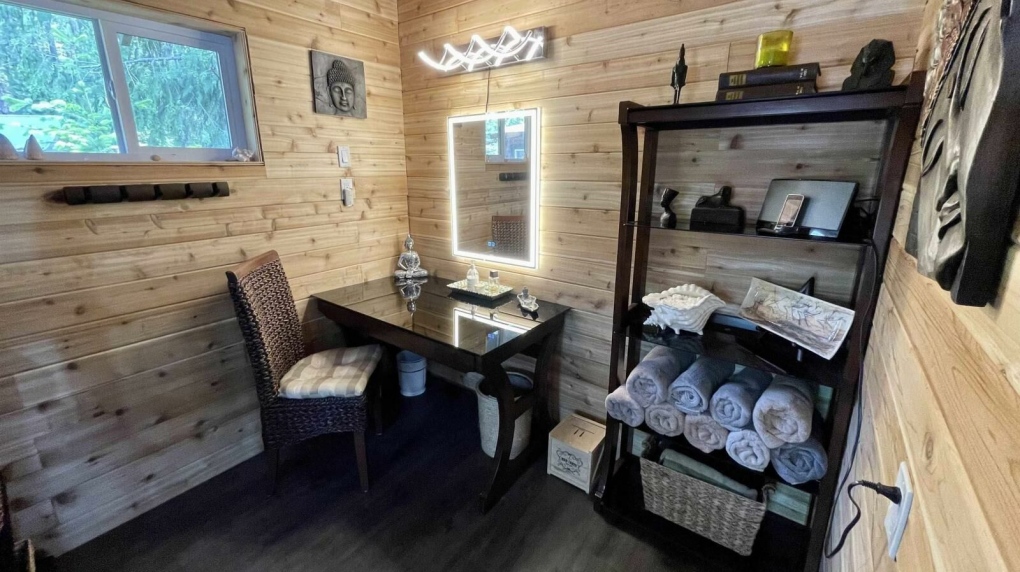 (Hayden Simon, Century 21 Creekside Realty)
(Hayden Simon, Century 21 Creekside Realty)
Location: Harrison Hot Springs, B.C.
Price: $599,000
Year Built: 2002
Property Size: 189.52 sq. m
Lot Size: 0.33 hectares
Situated on the shores of Harrison Lake, this leasehold property is a two-hour drive from Vancouver. With nearly 190 square metres of living space, it includes five bedrooms and two bathrooms. The home also features a wood stove in the living area and a wood-burning hot tub in the backyard.
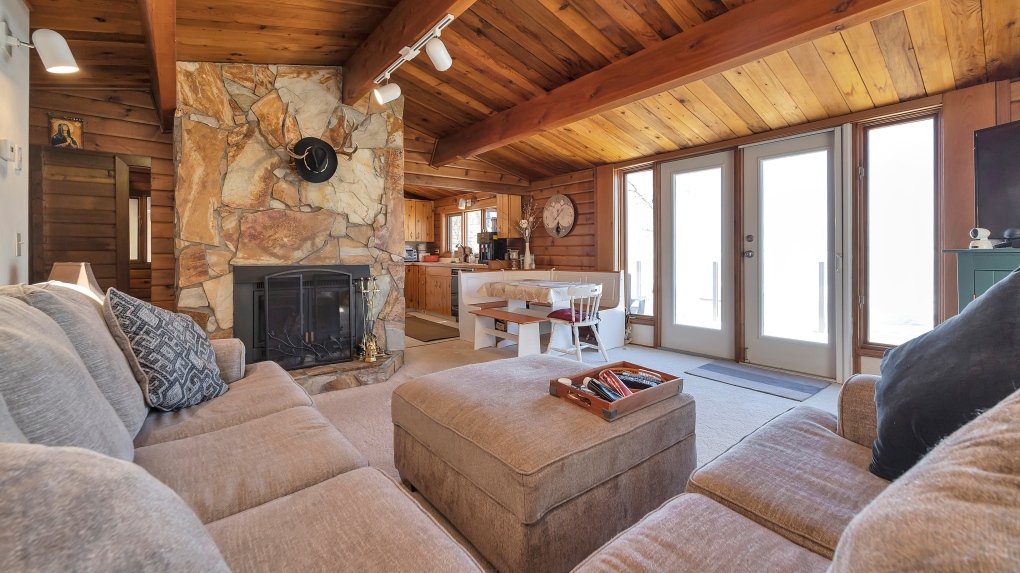 (Ryan Sagert, 1.m.A Media / Cathren Dorchester, Royal LePage Parkland Agencies)
(Ryan Sagert, 1.m.A Media / Cathren Dorchester, Royal LePage Parkland Agencies)
Location: Rural Wetaskiwin County, Alta.
Price: $759,000
Year Built: 1980
Property Size: 78.42 sq. m
Lot Size: 0.08 hectares
This lakefront home has four bedrooms and two bathrooms, in addition to a kitchen, living room and fully finished basement. The lower level comes with heated floors and offers outdoor access. In the backyard is a fire pit, along with a stone walkway that leads to Pigeon Lake.
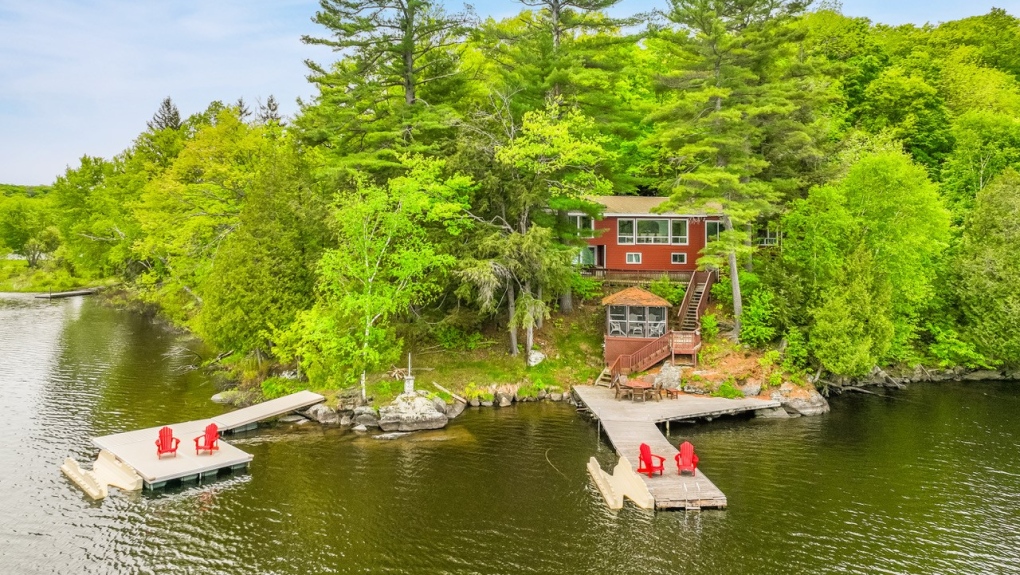 (Big Bay Media / Erin Monett, Chestnut Park Real Estate)
(Big Bay Media / Erin Monett, Chestnut Park Real Estate)
Location: Muskoka, Ont.
Price: $1,199,999
Year Built: 1976
Property Size: 165.55 sq. m
Lot Size: 1.31 hectares
Two separate docks lead the way to this four-bedroom, two-bathroom home in Muskoka, Ont. The property includes nearly 314 metres of shoreline along Green Bay, and 1.31 hectares of land. Large windows in the dining area provide a clear view of the waterfront. In addition to the cottage, a seasonal log cabin is also situated on the property.
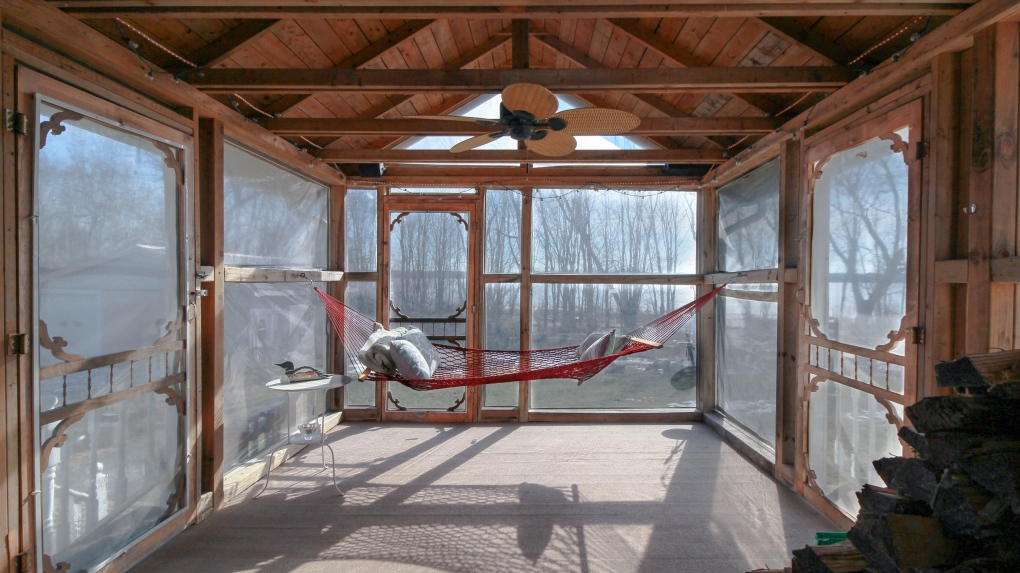 (Carol Love, Century 21 Lanthorn Real Estate)
(Carol Love, Century 21 Lanthorn Real Estate)
Location: Prince Edward County, Ont.
Price: $949,000
Year Built: 1981
Property Size: 130.06 sq. m
Lot Size: 1.09 hectares
Located in Prince Edward County, Ont., this waterfront bungalow offers views of Consecon Lake. Inside the home are four bedrooms, two bathrooms, a living room, kitchen and recreation room. In the backyard is a screened porch and deck facing the water, which can be accessed via a private boardwalk. This recreational home is located near Millennium Trail as well as shops, wineries and more.
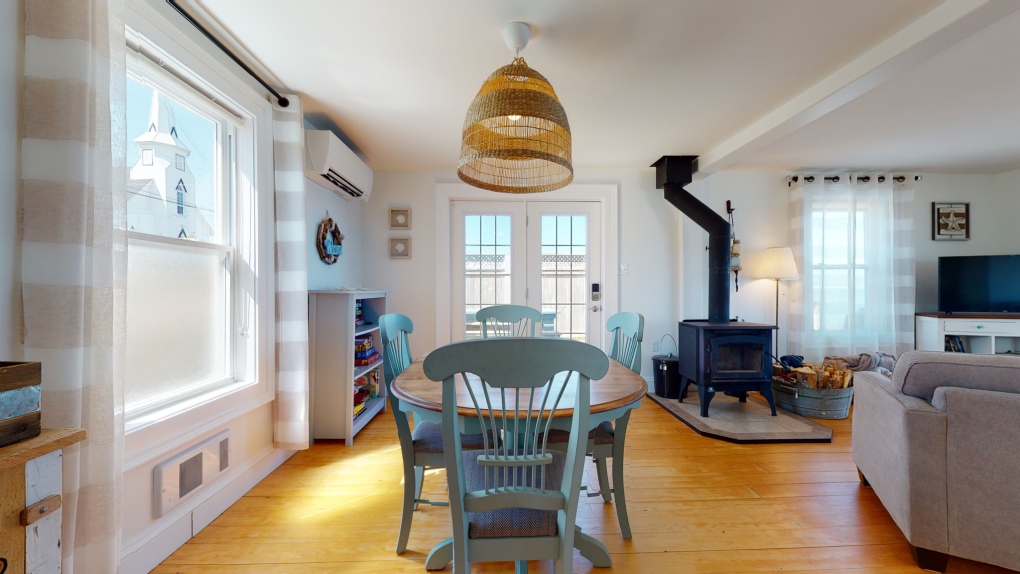 (Christopher Green / Joel Flewelling, Royal LePage Atlantic)
(Christopher Green / Joel Flewelling, Royal LePage Atlantic)
Location: Annapolis County, N.S.
Price: $399,000
Year Built: 1882
Property Size: 118.73 sq. m
Lot Size: 0.25 hectares
This two-storey home has two bedrooms, two bathrooms and nearly 120 square metres of living space. On the main floor is a combined living and dining area with a wood-burning stove, as well as a sunroom. On the upper floor, both bedrooms share a full bathroom, which includes a shower.
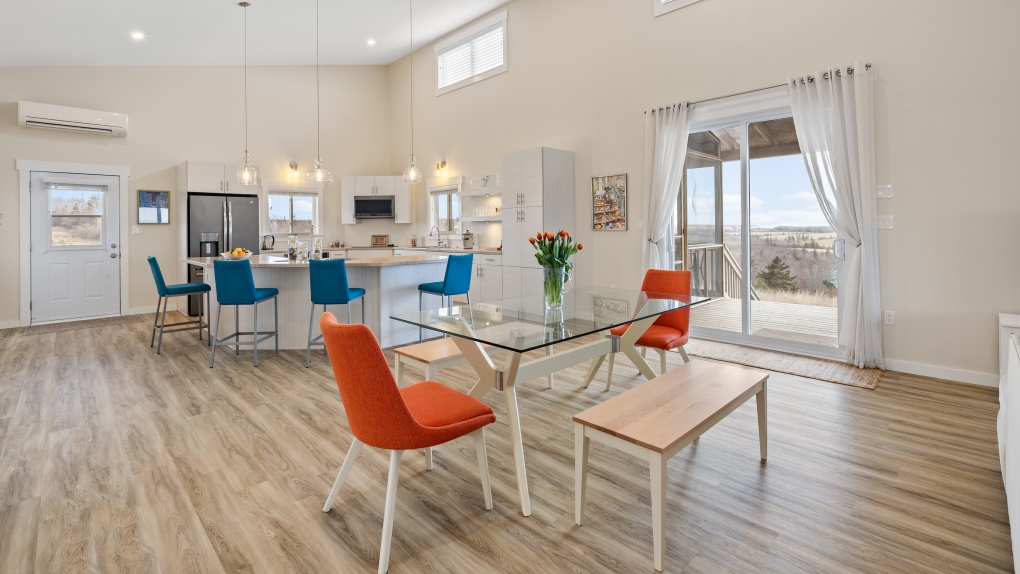 (Odyssey Virtual / Jodi Bernard, Century 21 Northumberland Realty)
(Odyssey Virtual / Jodi Bernard, Century 21 Northumberland Realty)
Location: Queens County, P.E.I.
Price: $499,000
Year Built: 2019
Property Size: 142.7 sq. m
Lot Size: 0.4 to 1.2 hectares
Situated on top of a hill, this cottage in central P.E.I. offers panoramic views stretching from Sea View to Park Corner. It features two bedrooms and two bathrooms, along with a kitchen and combined living and dining area. At the back of the home is a covered deck that is partially screened-in.
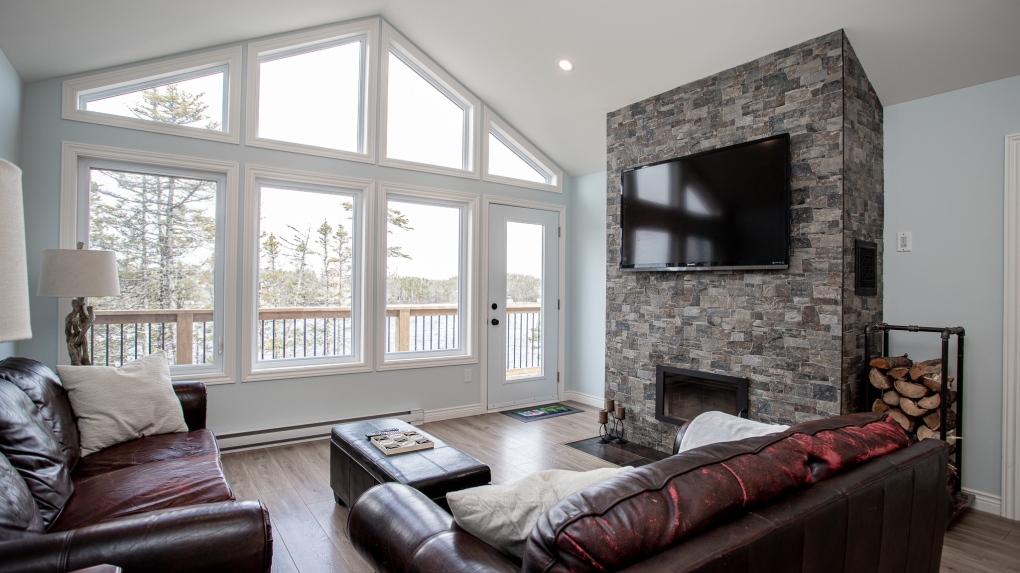 (Krista Trask, Century 21 Seller’s Choice)
(Krista Trask, Century 21 Seller’s Choice)
Location: Whitbourne, N.L.
Price: $449,900
Year Built: 2020
Property Size: 228.91 sq. m
Lot Size: under 0.4 hectares
Modern finishes can be found throughout this home in Whitbourne, N.L. The open-concept layout of the main floor includes vaulted ceilings and chalet windows. Also on the main level is a gourmet kitchen with an island that can seat three people. The main bedroom has a private patio door with access to the front deck, as well as three-piece ensuite.

The 2024 federal budget announced on April 16 included plans to introduce “halal mortgages” as a way to increase access to home ownership.
A recent report sheds light on Canadians living abroad--estimated at around four million people in 2016—and the public policies that impact them.
One person was killed in a six-vehicle crash on Highway 400 in Innisfil Friday evening.
An election-year roast of U.S. President Joe Biden before journalists, celebrities and politicians at the annual White House correspondents' dinner Saturday.
It's one thing to say you like Taylor Swift and her music, but don't blame CNN's AJ Willingham's when she says she just 'doesn't get' the global phenomenon.
Ontario is now home to an invasive and toxic worm species that can grow up to three feet long and can be dangerous to small animals and pets.
Harvey Weinstein’s lawyer said Saturday that the onetime movie mogul has been hospitalized for a battery of tests after his return to New York City following an appeals court ruling nullifying his 2020 rape conviction.
Polish President Andrzej Duda says while no decision has been made around whether Poland will host nuclear weapons as part of an expansion of the NATO alliance’s nuclear sharing program, his country is willing and prepared to do so.
A number of LGBQT+2s groups in Central Alberta are pushing back against a request from the Red Deer South UCP constituency to reinstate MLA Jennifer Johnson into the UCP caucus.

As if a 4-0 Edmonton Oilers lead in Game 1 of their playoff series with the Los Angeles Kings wasn't good enough, what was announced at Rogers Place during the next TV timeout nearly blew the roof off the downtown arena.
Mounties in Nanaimo, B.C., say two late-night revellers are lucky their allegedly drunken antics weren't reported to police after security cameras captured the men trying to steal a heavy sign from a downtown business.
A property tax bill is perplexing a small townhouse community in Fergus, Ont.
When identical twin sisters Kim and Michelle Krezonoski were invited to compete against some of the world’s most elite female runners at last week’s Boston Marathon, they were in disbelief.
The giant stone statues guarding the Lions Gate Bridge have been dressed in custom Vancouver Canucks jerseys as the NHL playoffs get underway.
A local Oilers fan is hoping to see his team cut through the postseason, so he can cut his hair.
A family from Laval, Que. is looking for answers... and their father's body. He died on vacation in Cuba and authorities sent someone else's body back to Canada.
A former educational assistant is calling attention to the rising violence in Alberta's classrooms.
The federal government says its plan to increase taxes on capital gains is aimed at wealthy Canadians to achieve “tax fairness.”